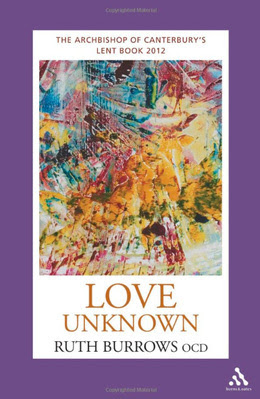 "Faith is not a thing of the mind; it is not an intellectual certainty or a felt conviction of the heart. It is a sustained decision to take God with utter seriousness as the God of my life. It is to live out each hour in a practical, concrete affirmation that God is Father and he is 'in heaven'. It is a decision to shift the centre of our lives from ourselves to him, to forego self-interest and make his interests, his will, our sole concern. This is what it means to hallow his name as Father in heaven." Sister Ruth Burrows, O.C.D.
"Faith is not a thing of the mind; it is not an intellectual certainty or a felt conviction of the heart. It is a sustained decision to take God with utter seriousness as the God of my life. It is to live out each hour in a practical, concrete affirmation that God is Father and he is 'in heaven'. It is a decision to shift the centre of our lives from ourselves to him, to forego self-interest and make his interests, his will, our sole concern. This is what it means to hallow his name as Father in heaven." Sister Ruth Burrows, O.C.D.I am indebted to "Leafyschroder" who comments on this blog for introducing me to Ruth Burrows, a Carmelite nun, who wrote the Archbishop of Canterbury's Lent book last year. In particular she recommended Before the Living God. I found this in an on-line review: "Her other books demonstrate the way God used even her worst experiences in the convent for her (and other's) spiritual benefit. It seems one purpose of the book might have been to encourage the reader to realize that God will take the most traumatic, or unfair circumstances if we turn to Him and transform it into one of our greatest blessings that brings spiritual peace and personal intimacy with God."
Leafyschroder then sent me this beautiful extract from a review of Ruth Burrows' latest book, Love Unknown:
"She has been trying to pray as a nun for 65 years. And what has she to show for it? Darkness, by her own account, and the feeling that God does not exist. As a young woman, when she prayed, nothing 'happened', and she soon realised it would always be like this. 'It is impossible to understand my life unless it is seen all the time against the background of black depression,' she wrote 36 years ago, in one of the great autobiographies of the twentieth century, Before the Living God.
"Her depression did not stem from any 'Dark Night of the Soul'. It came not from her vocation as a nun, but happened to be something that she brought to it with her, as part of her disposition. Those who have met her find her a sharp, intelligent, amusing interlocutor, but things are no easier for her in her spiritual life today. The difference is that now she is 'happy to be poor'. This attitude of poverty is the underlying, human theme of Love Unknown. The two themes go together: the objective reality of a loving God, and on the other side a radical human poverty on the part of the Christian loved by him.
"In this lies the answer to the person who finds that he or she is 'not getting anywhere' with prayer. Ruth Burrows challenges any such judgement based on subjective experience. Since it is God who prays in us, what would we expect to see and feel? Only by focusing on what is revealed by the risen Christ can we be sure that our God is real and not just a projection. We can only know the true, living God through his incarnate image."
Forgive me if you've already read my conversation with Leafyschroder, but I thought that last quotation really merited being a main blog entry. I'm ordering some of Ruth Burrows' books.
"Her depression did not stem from any 'Dark Night of the Soul'. It came not from her vocation as a nun, but happened to be something that she brought to it with her, as part of her disposition. Those who have met her find her a sharp, intelligent, amusing interlocutor, but things are no easier for her in her spiritual life today. The difference is that now she is 'happy to be poor'. This attitude of poverty is the underlying, human theme of Love Unknown. The two themes go together: the objective reality of a loving God, and on the other side a radical human poverty on the part of the Christian loved by him.
"In this lies the answer to the person who finds that he or she is 'not getting anywhere' with prayer. Ruth Burrows challenges any such judgement based on subjective experience. Since it is God who prays in us, what would we expect to see and feel? Only by focusing on what is revealed by the risen Christ can we be sure that our God is real and not just a projection. We can only know the true, living God through his incarnate image."
Forgive me if you've already read my conversation with Leafyschroder, but I thought that last quotation really merited being a main blog entry. I'm ordering some of Ruth Burrows' books.
